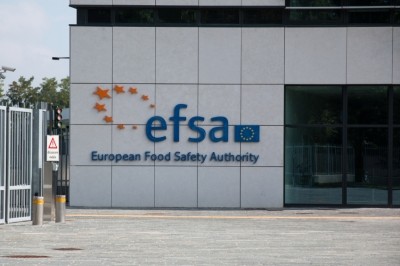‘We have heard the call for greater transparency’: Europe boosting trust in the science of food safety

Concluding trialogue negotiations, the European Parliament and Council reached a provisional agreement on the European Commission’s proposal to issue a regulation on the transparency and sustainability of EU risk assessment in the food chain.
The EC said this was an “important step forward” in the modernisation of EU food safety policy.
In a joint statement, First Vice-President Frans Timmermans and Commissioner Vytenis Andriukaitis, who is in charge of Health and Food Safety, said the agreement was a “resounding response” to citizen concerns over the transparency of scientific studies in food.
The proposal is a follow-up to the European Citizens' Initiative on glyphosate, especially to concerns expressed in the initiative regarding the transparency of the scientific studies used to evaluate pesticides. It also follows a fitness check of the General Food Law (GFL), which was completed last year.
"We have heard the call, notably expressed via a European Citizens Initiative on pesticides, for greater transparency, at an early stage of the risk assessment process, on studies submitted as part of an application for an authorisation. The EU's scientific risk assessment body – the European Food Safety Authority (EFSA) – will also be strengthened, with a greater involvement of Member States in its Management Board,” Timmermans and Andriukaitis said.
“This shows that European Citizens' Initiatives supported by over 1 million European citizens can have real impact on EU policy and legislation.”
Main elements of the agreement aim to:
- Ensure more transparency: Citizens will have “automatic access” to all studies and information submitted by industry in the risk assessment process. Stakeholders and the general public will also be consulted on submitted studies. At the same time, European policy makers suggerset, the agreement will guarantee confidentiality in “duly justified circumstances” by setting out the type of information that may be considered significantly harmful for commercial interests
- Increase the independence of studies: EFSA will be notified of all commissioned studies to guarantee that companies applying for authorisations submit all relevant information and do not “hold back unfavourable studies”.
- Strengthern governance and the scientific cooperation: Member States, civil society and European Parliament will be involved in the governance of the Authority by being represented in its Management Board.
- Develop “comprehensive” risk communication: A general plan for risk communication will be adopted to ensure a coherent risk communication strategy.
The provisional agreement will now have to formally be adopted both the European Parliament and the Council.
Transparency and speed are ‘vital’ for food safety
Speaking after agreement in trilogue negotiations, EuroCommerce Director-General Christian Verschueren said it was a “welcome step” to provide European consumers with greater trust in the food they buy.
Verschueren, who represents European retailers, stressed that past scares such as the fipronil contamination scandal in 2017 demonstrated “serious shortcomings” in communication and coordination between national and EU authorities. “The agreement today needs to lead to clear and coordinated messaging when problems arise.”
“In these times when unfounded or alarmist statements on social media can cause consumers real concern and confusion, it is paramount that we can all respond quickly with clear and accurate information. All parts of the supply chain, particularly retailers who are in the front line in dealing with consumers, need to be kept in the loop.
“EFSA has been successfully piloting improved transparency for some years, and the Commission needs to make sure that this is extended fully to the decision-making process. Stakeholders, in particular food businesses, should be able to provide informed views on how best to develop and implement new rules.”


















